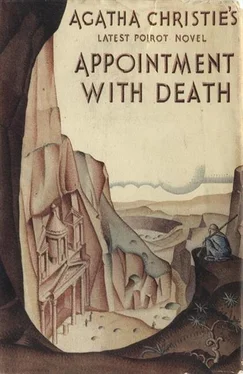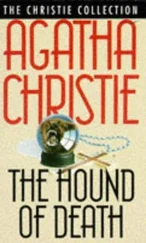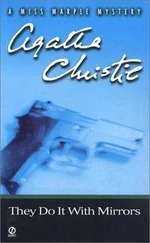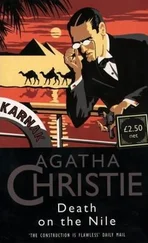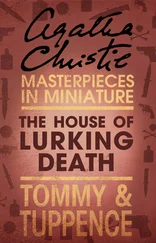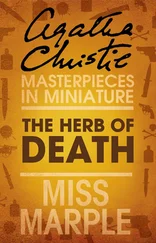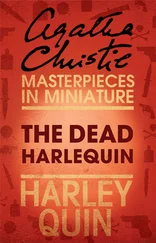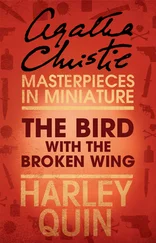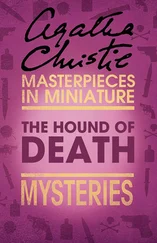Agatha Christie - Appointment with Death
Здесь есть возможность читать онлайн «Agatha Christie - Appointment with Death» весь текст электронной книги совершенно бесплатно (целиком полную версию без сокращений). В некоторых случаях можно слушать аудио, скачать через торрент в формате fb2 и присутствует краткое содержание. Год выпуска: 2007, ISBN: 2007, Издательство: Black Dog & Leventhal Publishers, Жанр: Классический детектив, на английском языке. Описание произведения, (предисловие) а так же отзывы посетителей доступны на портале библиотеки ЛибКат.
- Название:Appointment with Death
- Автор:
- Издательство:Black Dog & Leventhal Publishers
- Жанр:
- Год:2007
- ISBN:ISBN-10: 1579126928
- Рейтинг книги:4 / 5. Голосов: 1
-
Избранное:Добавить в избранное
- Отзывы:
-
Ваша оценка:
- 80
- 1
- 2
- 3
- 4
- 5
Appointment with Death: краткое содержание, описание и аннотация
Предлагаем к чтению аннотацию, описание, краткое содержание или предисловие (зависит от того, что написал сам автор книги «Appointment with Death»). Если вы не нашли необходимую информацию о книге — напишите в комментариях, мы постараемся отыскать её.
Appointment with Death — читать онлайн бесплатно полную книгу (весь текст) целиком
Ниже представлен текст книги, разбитый по страницам. Система сохранения места последней прочитанной страницы, позволяет с удобством читать онлайн бесплатно книгу «Appointment with Death», без необходимости каждый раз заново искать на чём Вы остановились. Поставьте закладку, и сможете в любой момент перейти на страницу, на которой закончили чтение.
Интервал:
Закладка:
Colonel Carbury cleared his throat and referred to an official-looking document. "Mrs. Boynton was spoken to by Lady Westholme and Miss Pierce shortly after four P.M… Lennox Boynton spoke to his mother about four-thirty. Mrs. Lennox Boynton had a long conversation with her about five minutes later. Carol Boynton had a word with her mother at a time she is unable to state precisely-but which, from the evidence of others, would seem to have been about ten minutes past five."
"Jefferson Cope, an American friend of the family, returning to the camp with Lady Westholme and Miss Pierce, saw her asleep. He did not speak to her. That was about twenty to six. Raymond Boynton, the younger son, seems to have been the last person to see her alive. On his return from a walk he went and spoke to her at about ten minutes to six. The discovery of the body was made at six-thirty when a servant went to tell her dinner was ready."
"Between the time that Mr. Raymond Boynton spoke to her and half-past six did no one go near her?" asked Poirot.
"I understand not."
"But someone might have done so?" Poirot persisted.
"Don't think so. From close on six and up to six-thirty servants were moving about the camp, people were going to and from their tents. No one can be found who saw anyone approaching the old lady."
"Then Raymond Boynton was definitely the last person to see his mother alive?" said Poirot.
Dr. Gerard and Colonel Carbury interchanged a quick glance. Colonel Carbury drummed on the table with his fingers.
"This is where we begin to get into deep waters," he said. "Go on, Gerard. This is your pigeon."
Dr. Gerard said: "As I mentioned just now, Sarah King, when she examined Mrs. Boynton, saw no reason for determining the exact time of death. She merely said that Mrs. Boynton had been dead 'some little time'; but when, on the following day for reasons of my own, I endeavored to narrow things down and happened to mention that Mrs. Boynton was last seen alive by her son, Raymond, at a little before six, Miss King, to my great surprise, said point blank that that was impossible, that at that time Mrs. Boynton must already have been dead."
Poirot's eyebrows rose. "Odd. Extremely odd. And what does M. Raymond Boynton say to that?"
Colonel Carbury said abruptly: "He swears that his mother was alive. He went up to her and said: 'I'm back. Hope you have had a nice afternoon?' Something of that kind. He says she just grunted 'Quite all right,' and he went on to his tent."
Poirot frowned perplexedly. "Curious," he said. "Extremely curious. Tell me-it was growing dusk by then?"
"The sun was just setting."
"Curious," said Poirot again. "And you, Dr. Gerard, when did you see the body?"
"Not until the following day. At nine A.M., to be precise."
"And your estimate of the time death had occurred?"
The Frenchman shrugged his shoulders. "It is difficult to be exact after that length of time. There must necessarily be a margin of several hours. Were I giving evidence on oath I could only say that she had been dead certainly twelve hours and not longer than eighteen. You see, that does not help at all!"
"Go on, Gerard," said Colonel Carbury. "Give him the rest of it."
"On getting up in the morning," said Dr. Gerard, "I found my hypodermic syringe-it was behind a case of bottles on my dressing table." He leaned forward. "You may say, if you like, that I had overlooked it the day before. I was in a miserable state of fever and wretchedness, shaking from head to foot, and how often does one look for a thing that is there all the time and yet be unable to find it! I can only say that I am quite positive the syringe was not there then."
"There's something more still," said Carburv. "Yes, two facts for what they are worth and they mean a great deal. There was a mark on the dead woman's wrist-a mark such as would be caused by the insertion of a hypodermic syringe. Her daughter explains it as having been caused by the prick of a pin-"
Poirot stirred. "Which daughter?"
"Her daughter, Carol."
"Yes, continue, I pray you."
"And there is the last fact. Happening to examine my little case of drugs I noticed that my stock of digitoxin was very much diminished."
"Digitoxin," said Poirot, "is a heart poison, is it not?"
"Yes. It is obtained from digitalis purpurea-the common foxglove. There are four active principles-digitalin-digitonin-digitalein-and digitoxin. Of these, digitoxin is considered the most active poisonous constituent of digitalis leaves. According to Kopp's experiments, it is from six to ten times stronger than digitalin or digitalein. It is official in France-but not in the British Pharmacopoeia."
"And a large dose of digitoxin?"
Dr. Gerard said gravely: "A large dose of digitoxin thrown suddenly on the circulation by intravenous injection would cause sudden death by quick palsy of the heart. It has been estimated that four milligrams might prove fatal to an adult man."
"And Mrs. Boynton already suffered with heart trouble?"
"Yes; as a matter of fact, she was actually taking a medicine containing digitalis."
"That," said Poirot, "is extremely interesting."
"D'you mean," asked Colonel Carbury, "that her death might have been attributed to an overdose of her own medicine?"
"That-yes. But I meant more than that. In some senses," said Dr. Gerard, "digitalis may be considered a cumulative drug. Moreover, as regards postmortem appearance, the active principles of the digitalis may destroy life and leave no appreciative sign."
Poirot nodded slow appreciation. "Yes, that is clever-very clever. Almost impossible to prove satisfactorily to a jury. Ah, but let me tell you, gentlemen, if this is a murder, it is a very clever murder! The hypodermic replaced, the poison employed being one which the victim was already taking-the possibilities of a mistake-or accident-are overwhelming. Oh, yes, there are brains here. There is thought-care-genius."
For a moment he sat in silence, then he raised his head. "And yet, one thing puzzles me."
"What is that?"
"The theft of the hypodermic syringe."
"It was taken," said Dr. Gerard quickly.
"Taken-and returned?"
"Yes."
"Odd," said Poirot. "Very odd. Otherwise everything fits so well…"
Colonel Carbury looked at him curiously. "Well?" he said. "What's your expert opinion? Was it murder-or wasn't it?"
Poirot held up a hand. "One moment. We have not yet arrived at that point. There is still some evidence to consider."
"What evidence? You've had it all."
"Ah! But this is evidence that I, Hercule Poirot, bring to you." He nodded his head and smiled a little at their two astonished faces. ''Yes it is droll, that! That I, to whom you tell the story, should in return present you with a piece of evidence about which you do not know. It was like this. In the Solomon Hotel, one night, I go to the window to make sure it is closed-"
"Closed-or open?" asked Carbury.
"Closed," said Poirot firmly. "It was open, so naturally, I go to close it. But before I do so, as my hand is on the latch, I hear a voice speaking-an agreeable voice, low and clear with a tremor in it of nervous excitement. I say to myself it is a voice I will know again. And what does it say, this voice? It says these words: 'You do see, don't you, that she's got to be killed?'"
He paused.
"At the moment, naturellement, I do not take those words as referring to a killing of flesh and blood. I think it is an author or perhaps a playwright who speaks. But now I am not so sure. That is to say, I am sure it was nothing of the kind."
Again he paused before saying: "Messieurs, I will tell you this-to the best of my knowledge and belief those words were spoken by a young man whom I saw later in the lounge of the hotel and who was, so they told me on inquiring, a young man of the name of Raymond Boynton."
Читать дальшеИнтервал:
Закладка:
Похожие книги на «Appointment with Death»
Представляем Вашему вниманию похожие книги на «Appointment with Death» списком для выбора. Мы отобрали схожую по названию и смыслу литературу в надежде предоставить читателям больше вариантов отыскать новые, интересные, ещё непрочитанные произведения.
Обсуждение, отзывы о книге «Appointment with Death» и просто собственные мнения читателей. Оставьте ваши комментарии, напишите, что Вы думаете о произведении, его смысле или главных героях. Укажите что конкретно понравилось, а что нет, и почему Вы так считаете.
